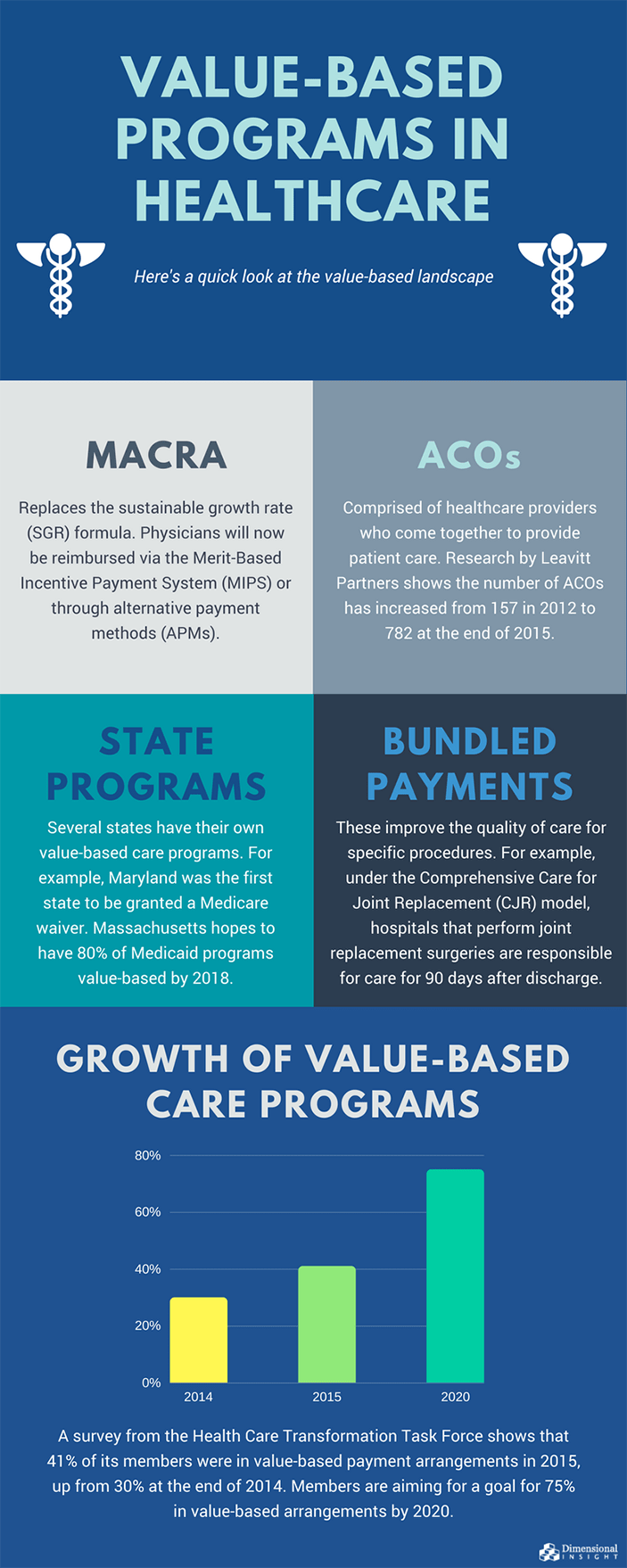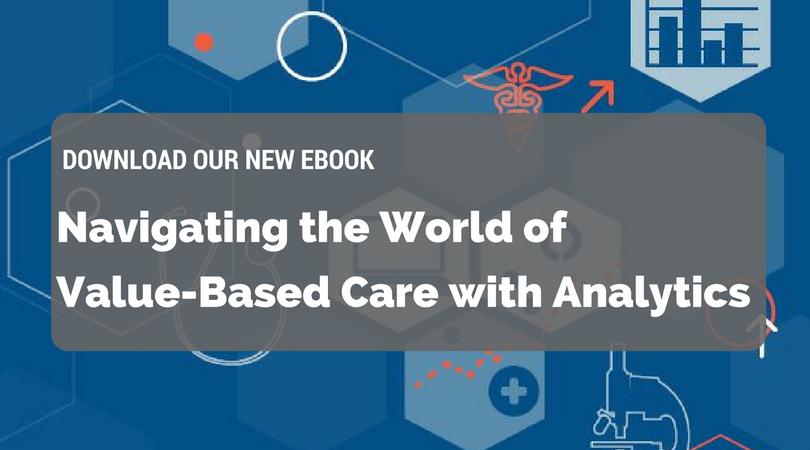 It’s no secret that healthcare costs are quickly rising. In fact, the U.S. currently spends about $10,000 per person on healthcare. Value-based care programs have emerged as a new form of reimbursement that ties care delivery payments to the quality of care provided, while also rewarding providers for efficiency and effectiveness.
It’s no secret that healthcare costs are quickly rising. In fact, the U.S. currently spends about $10,000 per person on healthcare. Value-based care programs have emerged as a new form of reimbursement that ties care delivery payments to the quality of care provided, while also rewarding providers for efficiency and effectiveness.
Tweet: Navigating the world of value-based care with analytics
As these new reimbursement models roll out, healthcare organizations must understand the different programs’ requirements and what will be expected of them moving forward. In this blog post, we’ll examine some of the common value-based care programs that are impacting providers.
High costs of healthcare
National Health Expenditure data from the Centers for Medicare & Medicaid Services shows that Americans spent $3.2 trillion on healthcare in 2015, a 5.8% increase from the previous year. That accounts for 17.8% of the Gross Domestic Product (GDP), and there is no end in sight. Over the next decade, healthcare spending is expected to continue to grow at 5.8% each year.
Emergence of value-based care programs
In response to these changes, several different value-based care programs have emerged. These programs have quickly grown in popularity, with a recent survey from the Health Care Transformation Task Force showing that 41% of its members were in value-based payment arrangements at the end of 2015, up from 30% at the end of 2014. Task force members are also aiming for a goal of 75% in value-based arrangements by 2020.
Many different types of value-based programs in healthcare exist right now. While MACRA is currently receiving the most attention, ACOs, state-specific programs, and bundled payments also exist.
We created this infographic to help you better understand the value-based landscape. Do you want to learn more? If so, you can also download our new eBook, which examines how healthcare providers can use analytics to help navigate the new value-based care world.

Learn more
Ready for a test drive of our healthcare analytics software?
- Solving Hospital CEOs’ Pressing Challenges With Analytics - April 15, 2024
- Navigating the Wellness Wave: Wine & Spirits Data Strategy - April 9, 2024
- Takeaways from HIMSS24 - March 26, 2024



